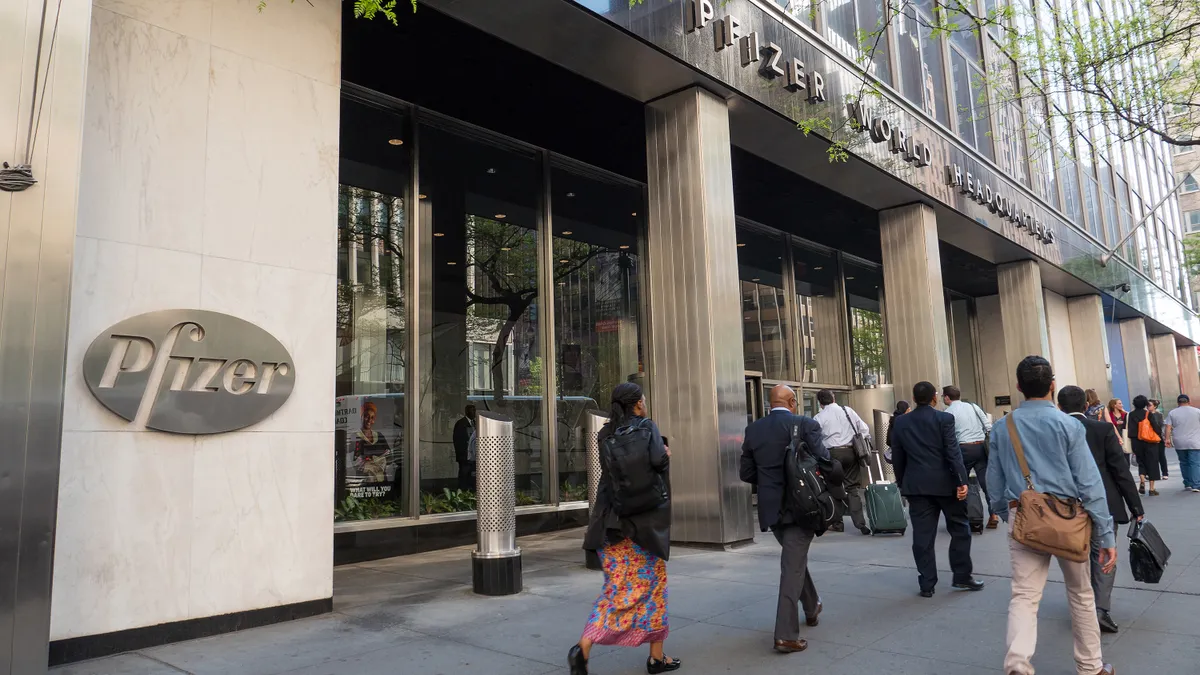Dive Brief:
- A new joint venture by Chronicled and LinkLab — The MediLedger Project — seeks to help the pharmaceutical industry comply with regulations and improve supply chain security with blockchain technology.
- The Drug Supply Chain Security Act (DSCSA) requires the industry adopt an "interoperable system" to track and trace prescription drugs across the supply chain, and the Project is looking to prove blockchain is the best technology to achieve this goal.
- Roche AG's Genentech unit, Pfizer Inc., AmerisourceBergen Corp. and McKesson Corp. are part of a working group to help the Project identify industry requirements for a blockchain pilot. The group already built a prototype, and is now looking at creating an industry operating model.
Dive Insight:
Ever since Congress enacted the Drug Supply Chain Security Act in 2013, the pharmaceutical industry has been preparing to adopt an interoperable system by 2023.
An interoperable system, the Food and Drug Administration (FDA) said, would help the regulator identify and trace prescription drugs as they were distributed in the U.S. A helpful side effect is that the FDA could then also detect and remove counterfeit, stolen, contaminated or "otherwise harmful" drugs from the drug supply chain.
The task, though, is far from simple — as shown by the ten-year timeline for implementation. The industry would have to work together to create common standards and improve downstream communication. Manufacturers, packagers, wholesale distributors and even third-party logistics providers would play a role in creating this new system.
The result, so far, has been to create a cottage industry of new solutions and technology to facilitate the industry's transition. Track-and-trace tools, visibility software and serialization equipment are all part of the mix. Now, Big Pharma has added another solution to the mix: blockchain.
The addition of blockchain technology as a potential solution is hardly surprising. After all, the FDA openly called for pilot projects that would address the three main challenges of the DSCSA: establishing a product identifier, quality barcodes and achieving interoperability.
Blockchain is a natural fit for the last focus area. The FDA explicitly stated it was looking for a project that could maintain "the integrity of information contained in the barcode" even if a supply chain partner was acquired or went out of business, work through various types of system architectures and exchange data in various formats.
Blockchain — which is most easily described as a public, connected database — promises to address these three concerns. In the Project's words, "every time an asset is registered, verified, or transferred on a blockchain, a distributed network of validation "nodes" come to consensus, making it exceedingly difficult for malicious actors to fabricate or tamper with the event logs."
For now, the Project is but a prototype. But, one that has buy-in from major actors in the pharmaceutical supply chain. Outside the pharmaceutical industry, blockchain is catching on as a way to secure information and create supply chain visibility. IBM, for example, recently partnered with a group of ten food companies to achieve greater security in the food supply chain. Why should drugs be any different?















